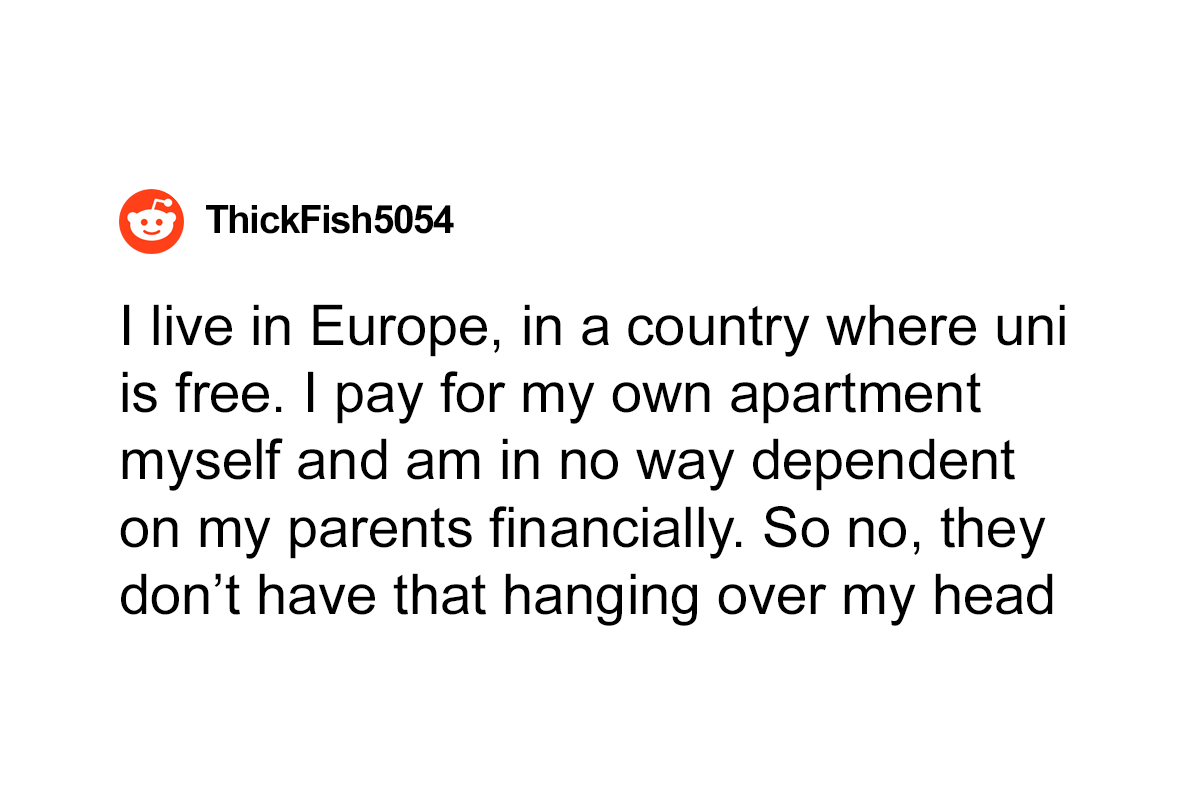
Woman Has Packed Uni Schedule But Her Parents Still Expect Her To Take Care Of Her Little Brother, Drama Ensues When She Refuses
For many working parents, family members are the perfect babysitters. Those who are fortunate enough to be surrounded by grandparents, aunts, uncles, siblings, and all the other extended relatives know their support can be a real lifesaver. Who could love your kids more? And not even charge you for it? This type of care can seem like a blessing, but unfortunately, some moms and dads grow to rely on these gifts a bit too much.
In fact, they may even expect you to constantly sacrifice your own life for their needs. This is what recently happened to Redditor ThickFish5054. The 19-year-old reached out to the AITA community to ask for advice after she decided to set some healthy boundaries and found herself in a heated argument with her parents.
See, she refused to look after her little brother for a week. “I usually don’t mind but I do feel like a free nanny sometimes,” the user wrote. The daughter thinks her family is taking her generosity to the extreme, and now that she’s starting university, her packed schedule leaves little time to care for the little one. But as you can guess, this didn’t sit well with the parents. Scroll down to read the full story and be sure to weigh in on the discussion in the comments.
This 19-year-old recently sought advice online after finding herself in a heated family argument
Image credits: Kampus Production (not the actual photo)
She refused to be “a free nanny” and look after her little brother while her parents were away for work, and they did not take it well
Image credits: Jessica Da Rosa (not the actual photo)
Later on, the user added an update and clarified a few details about the situation
Image credits: ThickFish5054
Expecting your child to drop everything on their first week at university — a milestone in a young person’s life — immediately strains the relationship. As many readers pointed out in the comments, it’s one of the most important times to make friends and navigate the twists and turns of the place where you’ll spend the following years. You anticipate parents will encourage their children on this journey, not flip out when things don’t go their way.
To gain more insight on the topic, we reached out to Judy Bartkowiak, a family therapist, coach, and author of Understanding Children and Teens. “It sounds as if the parents are very busy working people who don’t have adequate childcare for their 5-year-old. Expecting their teens to act as free childcare and for such a young child seems very irresponsible and unrealistic when one is at school and the other at Uni,” she told Bored Panda.
According to Bartkowiak, the choice to focus the responsibility on the oldest daughter seems reasonable — that’s what many parents do. “But that said, the week in question is not possible. Surely this should have been realized and something else arranged with the grandmother much earlier such that it didn’t become a drama.”
“Some of the things the parents say to the oldest do seem to indicate perhaps some resentment that she has moved out and is independent and starting Uni,” she added. “Parents tend to be more demanding of the oldest child and particularly look to a female child rather than a male, for childcare.”
But this also begs further discussion. The different approaches parents have towards their older children give a hint of parental favoritism. According to a poll by YouGov, 10% of parents admit to playing favorites and preferring one of their kids over the others. Out of those, 43% of parents with three or more children said they favor the youngest, around a third (34%) the middle child, and fewer (19%) the eldest.
Whether real or perceived, parental favoritism can lead to tension in the family dynamics and even cause sibling rivalry. Bartkowiak pointed out this competition exists in most households, especially where the children are close in age. “Such a small gap as 19 and 17 means that the daughter was about 2 years old when the son was born and unable to fully understand that she can no longer have 100% attention.”
“Having two children under 2 is exhausting anyway and if both parents are working hard then the priority would be the physical needs of the youngest,” the family therapist added. “Resentment can build up if the focus on the youngest continues, and any evidence of a situation being ‘unfair’ will trigger a more emotional reaction in the mind of the oldest child. This wouldn’t be the case with her and the 5-year-old because when that boy was born, she would have been old enough to understand and not feel resentful.”
Family relationships are tricky to navigate, especially when someone feels like they don’t get the love and attention they deserve. When it comes to siblings, Bartkowiak said that usually, the smaller the age gap, the bigger the issue. “When they say ‘it’s unfair’ or ‘you love him/her more than me’ instead of telling them they are wrong, reassure them by saying, ‘you know I love you both exactly the same but I can see how this situation may seem unfair right now,'” she advised parents.
“Acknowledging that their perceptions seem true for them is important rather than negating what they feel in the moment. You could also ask them for their solution so they feel they have a say.”
Every child knows about the stereotypical roles they often fit into, but one group that has it especially hard is the oldest daughters. “The oldest child, especially if they are female, has a tough time, often being the ‘rescuer’ in the family.” Bartkowiak noted that they step in, help out, comfort, correct, and take the role of a ‘stand-in mom’ — the list is seemingly endless — and this can feel particularly hard when they need motherly support themselves.
“This young lady is embarking on her university career and may feel a bit nervous and alone. What she needs is reassurance that she will be fine, do well, make friends and cope living away from home. It’s tough that instead, at the very time she needs a loving parent, she is being treated as if she’s let them down and is being selfish and lazy.”
“This is her time and she should be able to live it. Her 5-year-old brother is not her responsibility and neither is it her brother’s, although he could be expected to help out an adult carer employed by the parents,” Bartkowiak concluded.
Readers expressed support for the daughter in the comments, here’s what they had to say
376Kviews
Share on FacebookSo why is high school important for the male but uni shouldn't be as important for the female? Not fair at all. And it's also not the daughters problem that the mother had a child 5 years ago she can't seem to take care of or have time for. This family needs to reevaluate their priorities and roles in life.
Old conservative habbits, is the answer to differents of attitude to boys and girls. She made the right call, by calling her grandmother and her offer to help out the granddaughter is the best of outcome the granddaughter could wish for. Her parents have to realise that their daughter get a life on her own. A helping hand is fine and everybody has to do the best they can for helping others out, but it's not a obligation to parents, they made the children their own, so the care of them is in the hands of them, always. Don't let them push you to the maximum, just be certain that's a gift of helping them out, because you can and will, not because they want to have space, or time of their own. That's the way good parenting should go. I've seen it a lot here in my direct aria, I've dealed with it myself. Just set bounderies.
Load More Replies...Damn, this hit close to home. As the eldest is was considered free childcare as well. A few days ago I witnessed a mom scolding her daughter for not taking care of her younger sibling, and damn that felt SO tocxic it hurt
I think it's reasonable expecting the eldest to take care of their kid siblings, and as the eldest I don't mind that. It's a whole different thing though when the parents dump the whole responsibility on you, or treat you as if you should always be available to be a substitute when they need you, and that your plans aren't important in comparison.
Load More Replies...Wow. I would consider therapy bc the guilt that the parents has instilled will likely affect her behavior and happiness moving forward. It 1000% did for me.
So why is high school important for the male but uni shouldn't be as important for the female? Not fair at all. And it's also not the daughters problem that the mother had a child 5 years ago she can't seem to take care of or have time for. This family needs to reevaluate their priorities and roles in life.
Old conservative habbits, is the answer to differents of attitude to boys and girls. She made the right call, by calling her grandmother and her offer to help out the granddaughter is the best of outcome the granddaughter could wish for. Her parents have to realise that their daughter get a life on her own. A helping hand is fine and everybody has to do the best they can for helping others out, but it's not a obligation to parents, they made the children their own, so the care of them is in the hands of them, always. Don't let them push you to the maximum, just be certain that's a gift of helping them out, because you can and will, not because they want to have space, or time of their own. That's the way good parenting should go. I've seen it a lot here in my direct aria, I've dealed with it myself. Just set bounderies.
Load More Replies...Damn, this hit close to home. As the eldest is was considered free childcare as well. A few days ago I witnessed a mom scolding her daughter for not taking care of her younger sibling, and damn that felt SO tocxic it hurt
I think it's reasonable expecting the eldest to take care of their kid siblings, and as the eldest I don't mind that. It's a whole different thing though when the parents dump the whole responsibility on you, or treat you as if you should always be available to be a substitute when they need you, and that your plans aren't important in comparison.
Load More Replies...Wow. I would consider therapy bc the guilt that the parents has instilled will likely affect her behavior and happiness moving forward. It 1000% did for me.

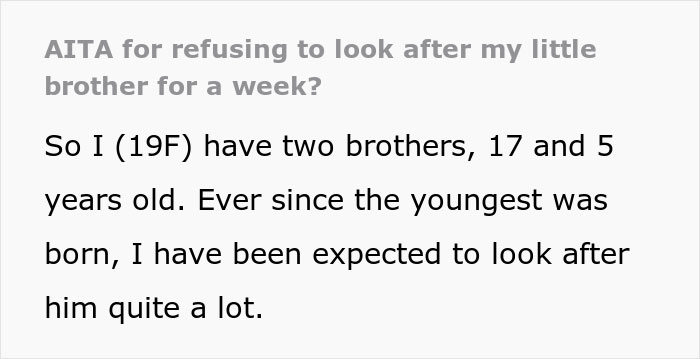

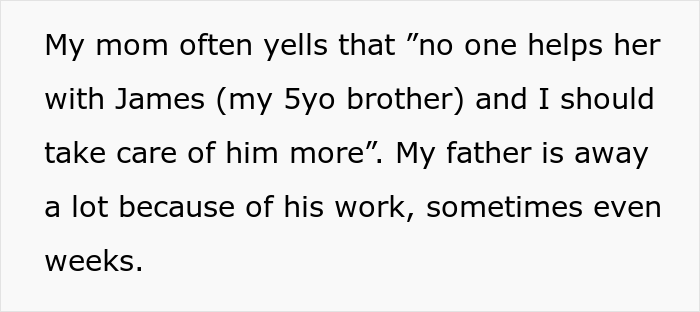


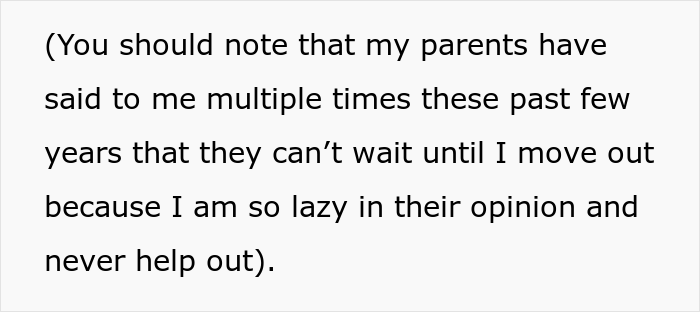


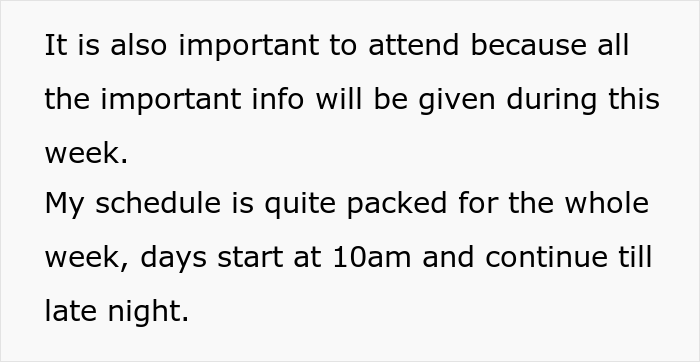
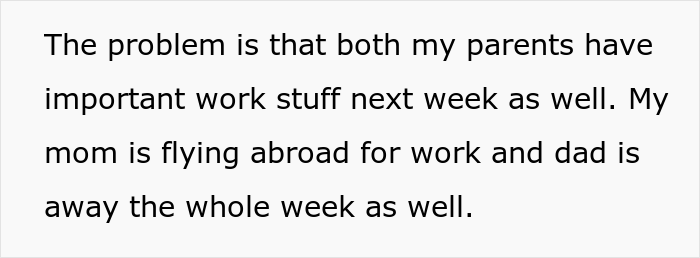
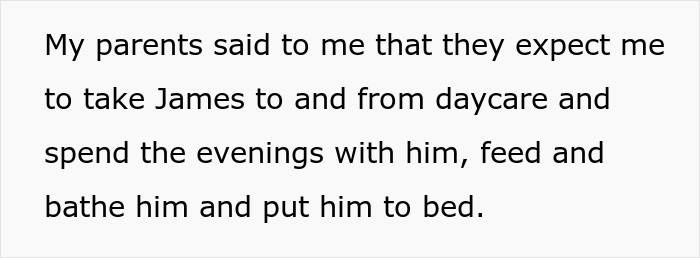
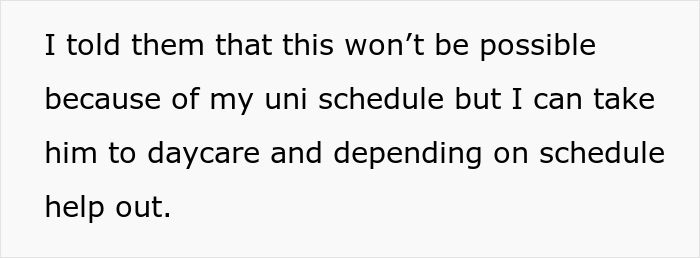
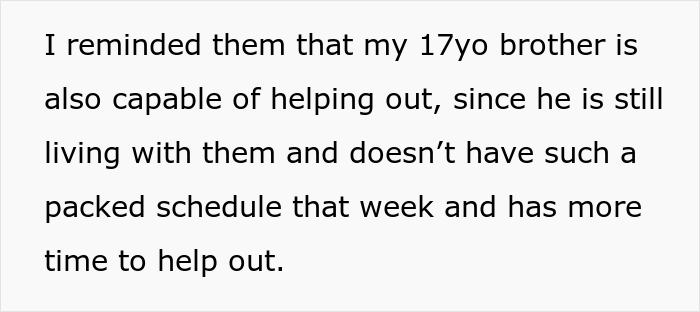

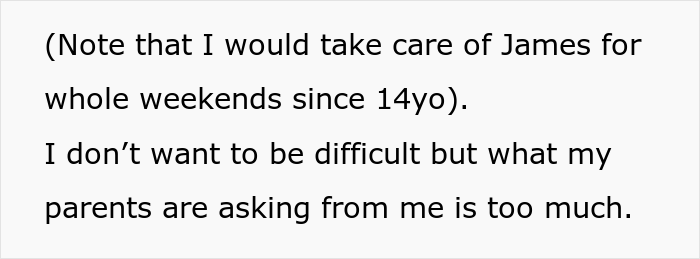


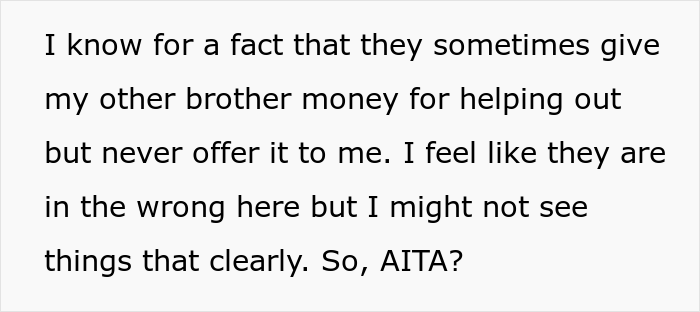
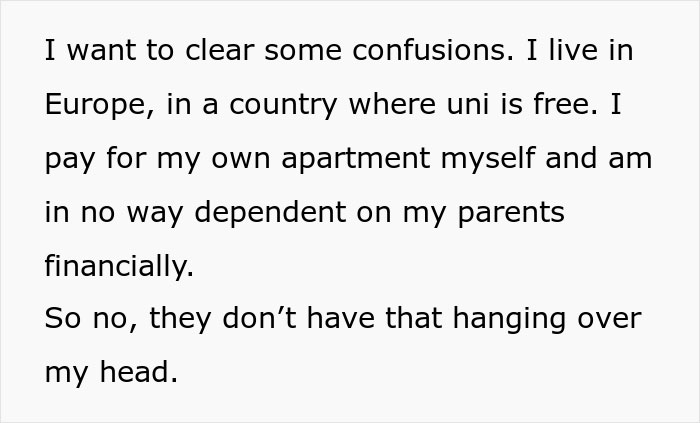
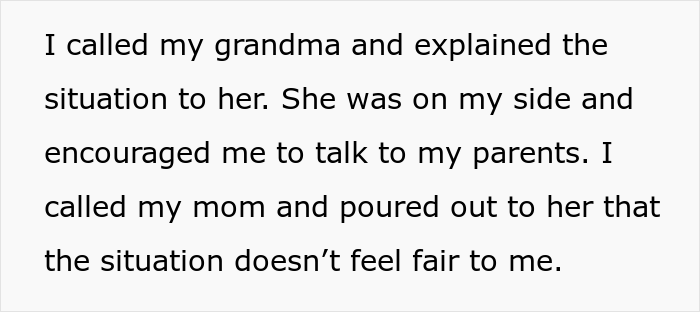
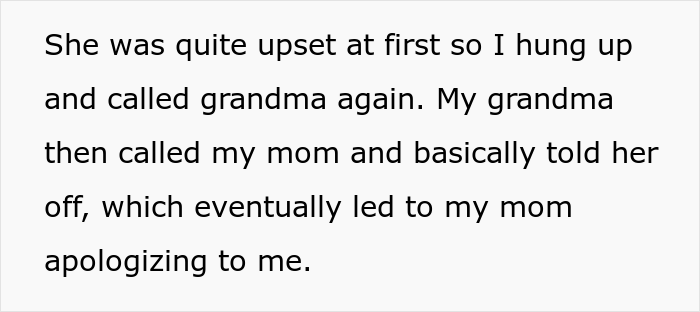

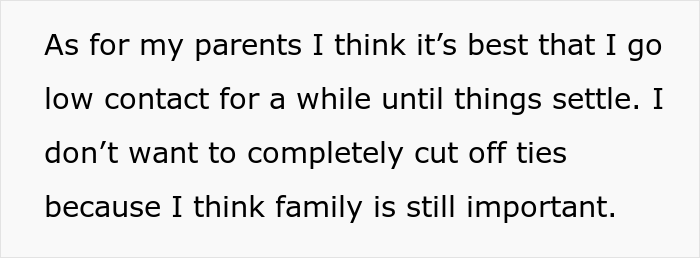


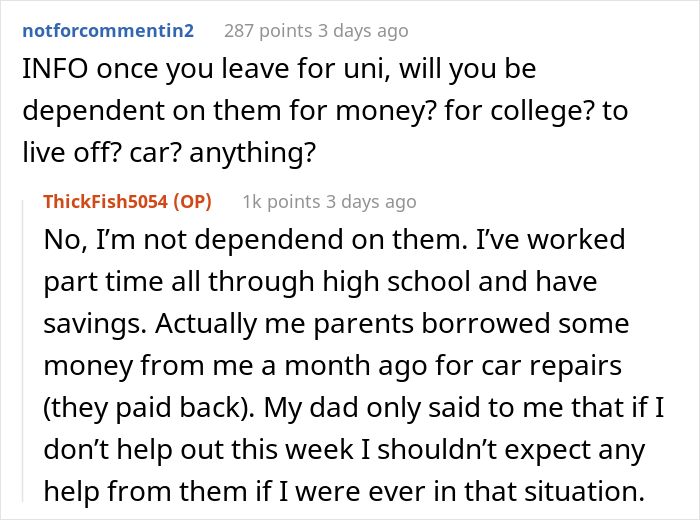

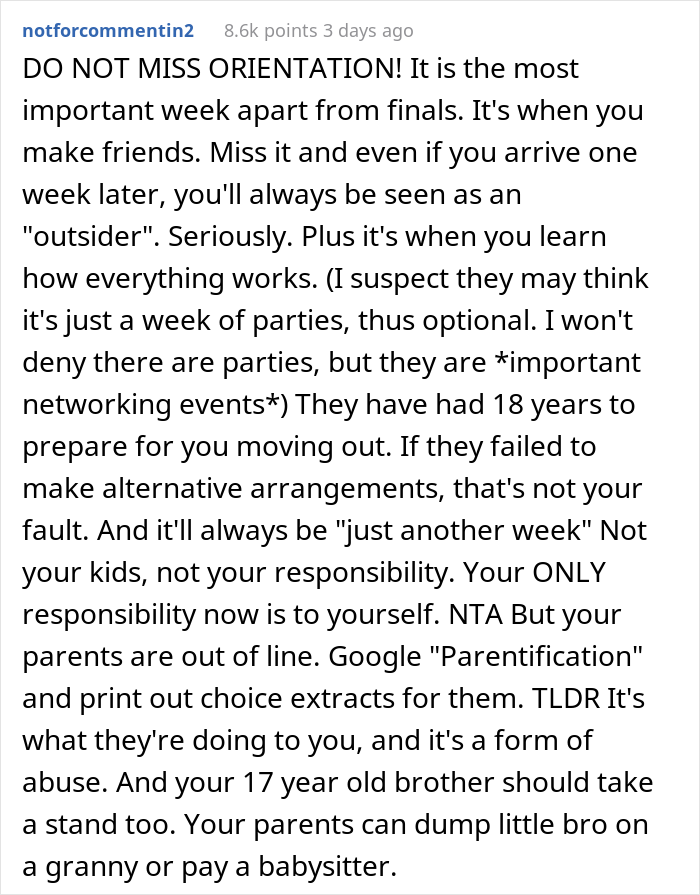
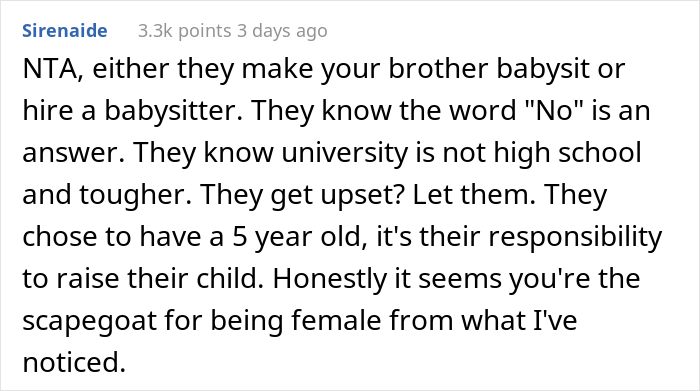

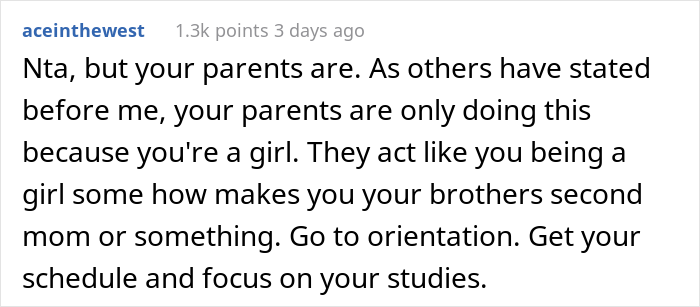
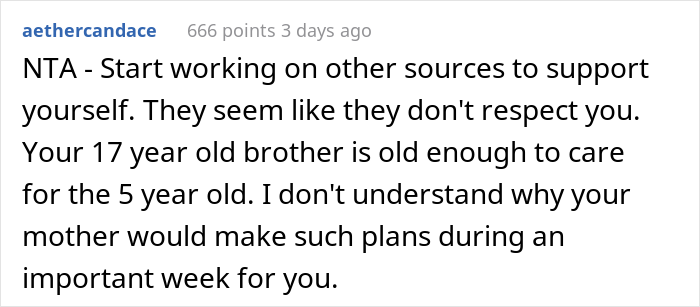
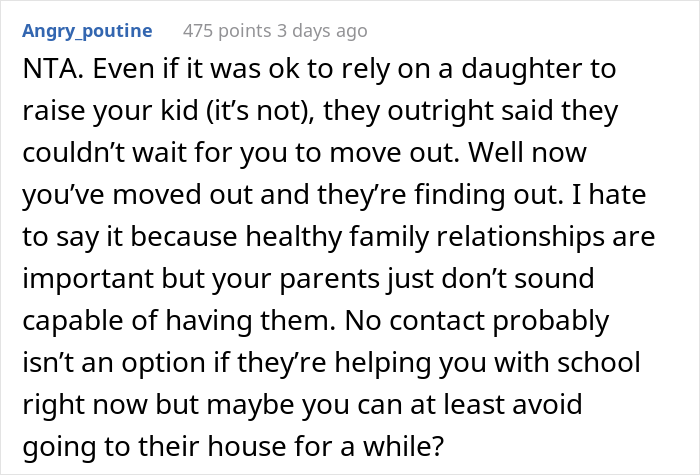
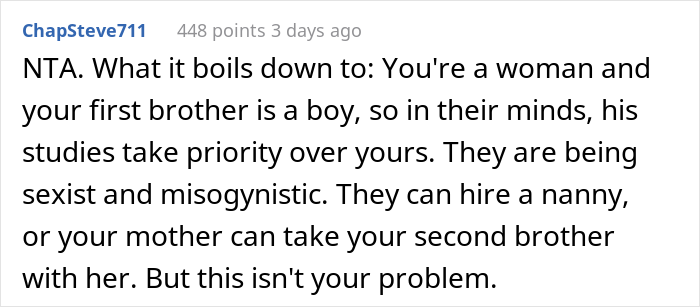
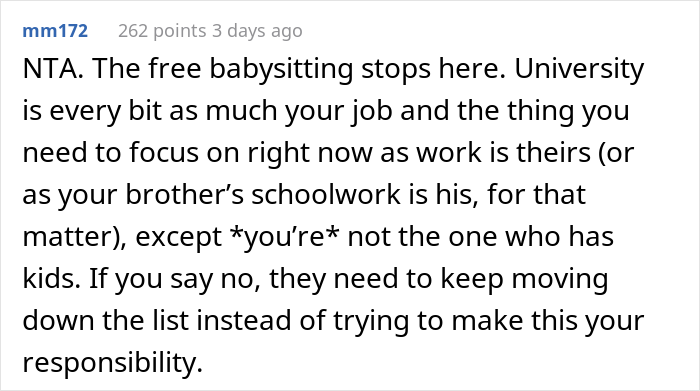

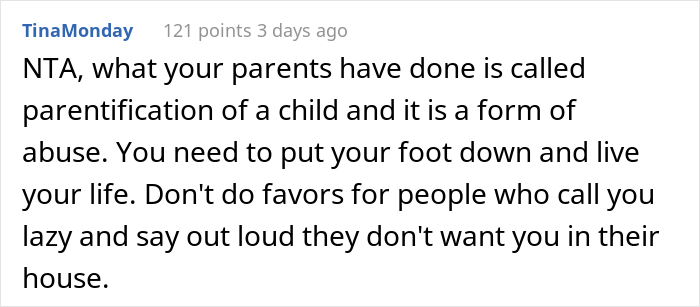

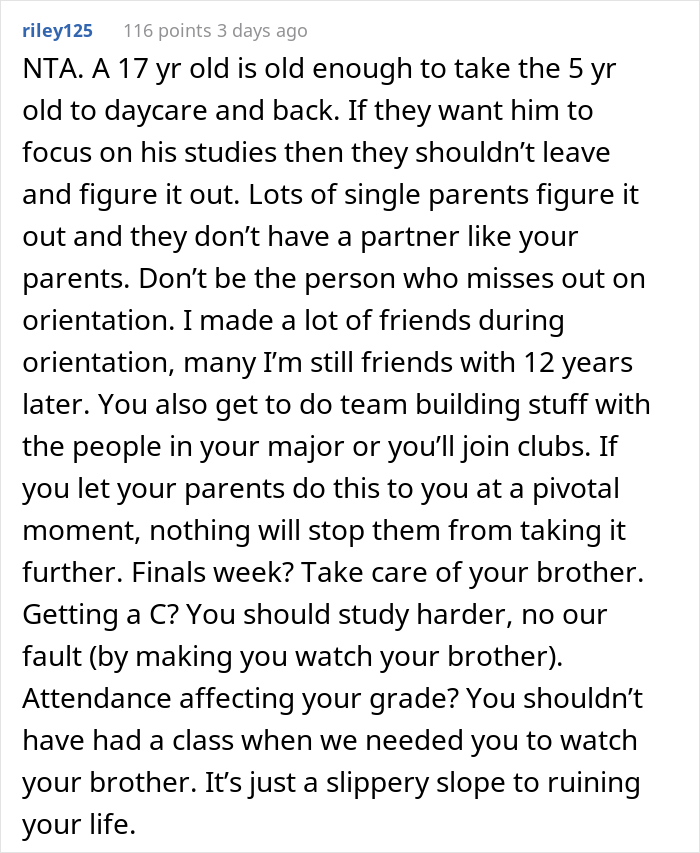





113
79